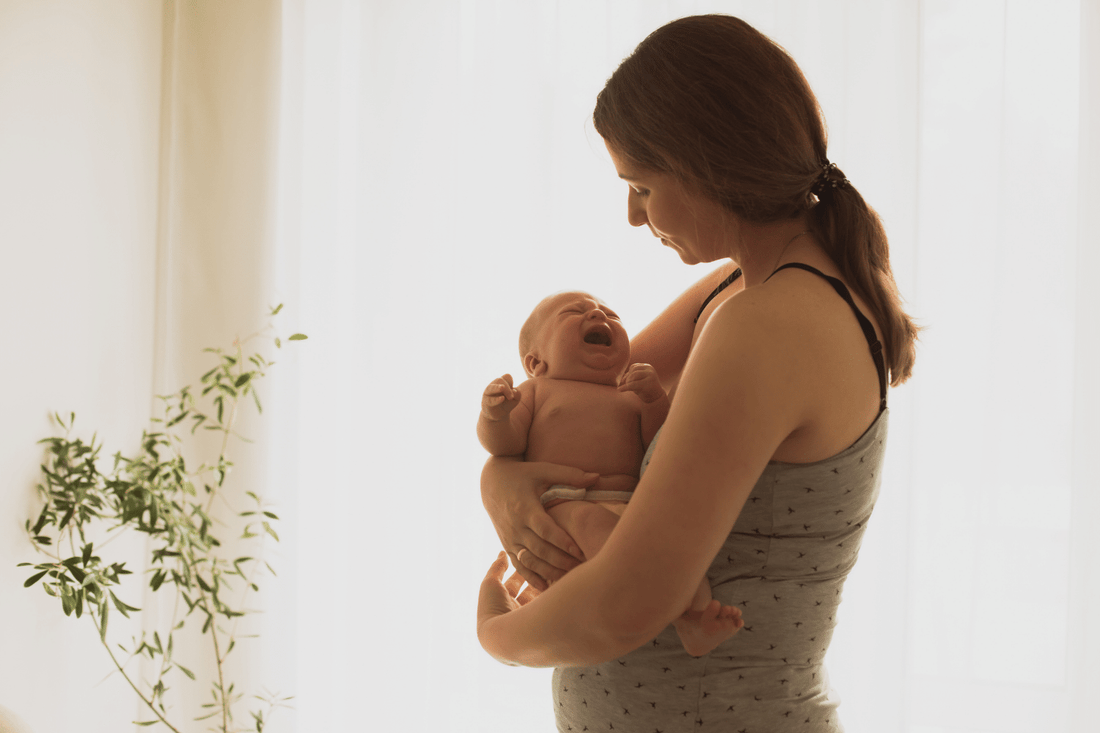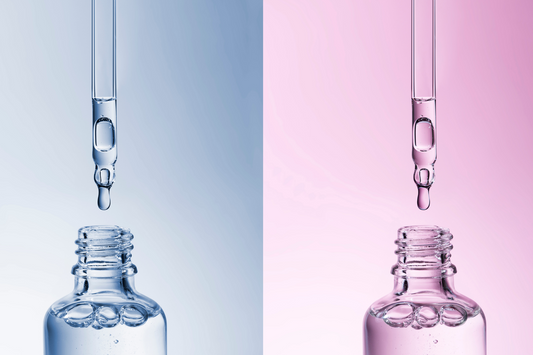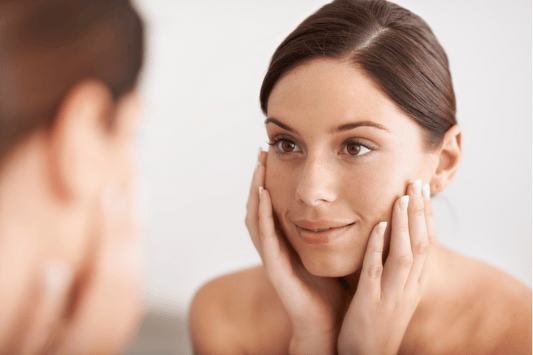Many women go through the same process - they have the best hair of their life during pregnancy and then experience a devastating amount of hair loss postpartum. But don’t worry! Postpartum hair loss is completely normal and results from hormonal changes in the body after giving birth. That being said, women don’t want to lose their hair postpartum, so is there anything that can help? We’ve talked about supplements before, and vitamins deficiencies for hair loss, but what about vitamins for postpartum hair loss? Can vitamins help with postpartum hair loss?
Why am I losing my hair after pregnancy?
Before we talk about vitamins for postpartum hair loss, let’s understand why hair loss happens after pregnancy. Hair growth happens in cycles. While some of your hair is actively growing in the Anagen phase, other hair follicles are in a resting phase called Telogen. The hair follicles in the resting phase eventually fall out to let new strands of hair grow in their place!
When you're pregnant, more hair stays in the active growing phase due to increased estrogen levels. However, after birth, estrogen decreases dramatically causing many hair follicles to enter the resting phase all at once. The result can be a devastating amount of hair shedding. This process is under the umbrella of telogen effluvium, a temporary form of hair loss and it starts 1 to 6 months after birth and can last up to 18 months post pregnancy.
Vitamins for postpartum hair loss
So how can I prevent this? Are there vitamins for postpartum hair loss that might help? The bad news is that there isn’t a surefire way to prevent or fix postpartum hair loss, but with the proper diet and vitamins, you can help create a more favorable environment for new hair growth! Let’s take a closer look at a few vitamins, minerals, and nutrients that might be able to help with postpartum hair loss
Iron:
Iron is a major source of hemoglobin, which is a protein in red blood cells that delivers oxygen throughout the body. If we don’t have enough iron, our bodies don’t have enough red blood cells to transport oxygen effectively. As a hair follicle develops, blood vessels start to grow around it to give the hair follicle nourishment. If this blood supply is cut off, hair cannot get the nutrients it needs to grow. Increasing your iron intake can make sure your hair gets the blood supply it needs for healthy hair growth.
Omega 3 and Omega 6:
Research on Omega 3&6 has shown that these fatty acids can prevent hair follicle inflammation. In fact, a 2016 study found that a 6-month supplementation with omega 3&6 and antioxidants acts effectively against hair loss. The study concluded an improvement in hair thickness and a reduction in the amount of hair in the resting phase of hair growth.
Vitamin C:
Vitamin C is a potent vitamin and antioxidant. It can help protect scalp cells and blood vessels from environmental stressors. Vitamin C can also help improve hair growth by maintaining the collagen in our bodies. Collagen is important because our bodies need its amino acids to build hair proteins that keep our hair follicles strong and healthy. In addition, vitamin C intake helps the body absorb iron, so it can help people experiencing hair loss from iron deficiencies postpartum.
Vitamin D:
Vitamin D is another vitamin that plays a lot of roles in the body. It helps maintain and control calcium levels, fight infections and helps reduce inflammation. Studies have shown that an increase in vitamin D can decrease hair loss from telogen effluvium. Vitamin D deficiency is most likely to occur in people who don’t get daily exposure to the sun, which can occur postpartum since you have to take care of another human, so think about taking a vitamin D supplement if you can’t get outside.
Biotin (Vitamin B7):
Biotin, or Vitamin B7, is another popular vitamin for postpartum hair loss. A study in 2016 indicated that 38% of women complaining of hair loss had a Biotin deficiency. Biotin is important for amino acids and the synthesis of keratin, the main protein in hair. Keratin can then help strengthen hair and support for hair growth postpartum.
Vitamin E:
Vitamin E is a potent antioxidant that has been used in skincare products for years. The reason, vitamin E has been known to have anti-aging, anti-redness and UVA/UVB protection benefits. So can it help with postpartum hair loss? A small study in 2010 found vitamin E supplementation to increase hair growth. Why? Vitamin E may increase blood flow to provide more nutrients to hair follicles and decrease environmental stress on the scalp. The result, stronger hair postpartum.
How should I get these vitamins for postpartum hair loss?
The best way to get vitamins for postpartum hair loss is through a healthy and balanced diet. Make sure to eat a range of foods that contain these nutrients, like vegetables, whole grains, lean protein, fresh fruit and healthy fats! If you are struggling to get these nutrients through your everyday diet, consider adding supplements to your routine. But before starting vitamins for postpartum hair loss, make sure to always consult with a healthcare professional to determine you are actually deficient in any of these vitamins.
At the end of the day, when it comes to vitamins for postpartum hair loss, it’s complicated. While all of these vitamins could potentially help, more studies are needed in order to truly understand their effectiveness for women experiencing hair thinning after pregnancy. If you're struggling with postpartum hair loss, try incorporating the Revela Hair Revival Serum into your daily routine. Our new proprietary, patent pending ingredient, Procelinyl, directly targets hair follicle health to help stimulate new hair growth.




